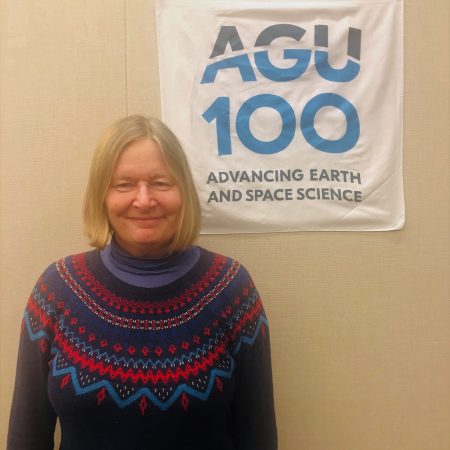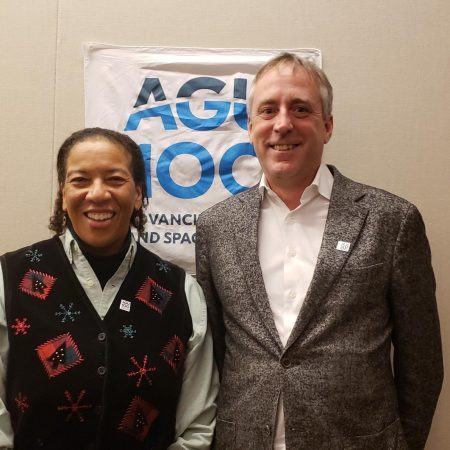Refine
Date Range Clear
Recorded by Clear
Keywords Clear
- #pollution 34
- #womeninscience 29
- atmospheric science 34
- #AGU100 34
- #AGU 32
- discovery 11
- Advice 7
- 128 more
Partnerships Clear
- No matching terms.
Organizations Clear
- American Geophysical Union 12
- National Aeronautics and Space Administration 2
- Ameican Geophysical Union 1
- Ameican Geophysican Union 1
- American Geophsyical Union 1
- 3 more
Places Clear
- Washington DC 34
- AGU 2018 Fall Meeting 30
- AGU Fall Meeting Program Commitee 2
- American Geophysical Union 1
- FAIR DATA 1
- 1 more
Languages Clear
- No matching terms.
Initiatives Clear
- No matching terms.
There’s a bit of a culture change moving from Ohio to New Hampshire, which Melanie Perello, Ph.D. candidate at Indiana University, did as part of her studies. Would you be surprised that going from either to Tibet to study paleoclimate...
Dr. Claire Parkinson, senior scientist at NASA's Goddard Space Flight Center since 1978, discusses using satellite data to monitor sea ice in the Arctic and Antarctic and serving as project scientist for the NASA satellite Aqua, which makes measurements of...
Kristen Erickson, Director of science engagements and partnership, recently helmed NASA’s efforts to involve over 154 million adult Americans with direct participation with the 2017 total eclipse – the largest engagement effort in NASA history. But in her more than...
Michael MacCracken, chief scientist with the Climate Institute came to Washington, DC supposedly for one year, to help ten different agencies involved in climate research to work better together. He stayed for nine years, becoming the liaison to Vice President...
Bärbel Hönisch, Associate Professor of Environmental Sciences at Columbia University also known as Queen of Boron, transported us millions of years beyond the ice cores to the realm when Greenland had no ice. She took hold of a magical instrument...
For the last 14 years, Gari Mayberry has put her volcanology background to work as a disaster response coordinator at USAID. Disasters come in many shapes and sizes so that specialty is a start, but often Gari finds herself connecting...
We won’t say how long Susan Lozier has been shaping young minds at Duke University (she may let it slip), but she talks about amazing changes that have happened during her tenure. She grew up wondering how rivers get polluted,...
In begin in 1979, when Margaret Kivelson, UCLA, was part one of three women presenting a talk in which Fran Bagenal, University of Colorado Boulder, was sitting in the audience. They have been space scientists and collaborators for many years...
Mei Zheng studies and teaches atmospheric science at Peking University. She’s passionate about training the next generation of scientists, and ensuring that everyone has access to clean air. “A teacher’s job is to encourage, inspire, and challenge students to do...
France Lagroix, Research Scientist at Institut de Physique du Globe de Paris and AGU Leader share stories of her passion and the value of paleomagnetism. She talks of the discovery during her Ph'd research where she developed a novel application...
Denise Hills, Director in Geological Survey of Alabama and AGU leader shares stories of her collaborative experiences and how it has shaped her career. She discusses the significance of the growth of science and the importance of communicating science to...
Paul Newman, Chief Scientist for Earth Science at NASA Goddard Space Flight Center and the co-chair to the Montreal Protocol, is one of the planet’s top ozone watchdogs – a self-described detective who looks for any chemicals which may deplete...
Emily Schaller, project manager at NASA's National Suborbital Research Center at Ames, discusses her Ph.D. work studying the clouds on Titan and her work as a science and education. She recalled how as a young child, she would study illustrations...
Roberta Rudnick, Professor at University of California Santa Barbara, was captivated by science from a young age, witnessing the Mt. Saint Helens eruption while in college, and traveling the globe to understand plate tectonics, and how and why continents form...
In this inspiring interview, Becca Barnes, Bianca Rodriguez-Cardona, Evelyn Valdez-Ward, and Ben Sulman, four early-career biogeoscientists come together to share their reflections on what it means to be a scientist today. How can scientific knowledge be spread on social media?...
After being drawn to the oceans at an early age, Paula continues to examine many factors that influence changes in the oceans. As a program manager for NASA, she enjoys the opportunity to work with dedicated researchers and learn how...
Kristin Lawrence is reimagining how children of all ages can learn and discover science. She is the CEO and Founder of The Hopper, a science discovery playground coming soon to Boulder, Colorado. Kristin changed direction from a career in paleomagnetism...
The only interviewee to describe her chosen field as a “hoot,” Sonja Behnke, Los Alamos National Laboratory, has been actively involved in atmospheric electricity research since 2008. Before that, she was a math instructor as an AmeriCorps volunteer. As a...
Jill Marshall, Assistant Professor of Geology at the University of Arkansas thought she was ready to go to college, but there she was on the campus of Boston University as a freshman overwhelmed by her surroundings and on shaky financial...
Sonia Esperanca, Program Director for the National Science Foundation, supports earth-science research in the academic community. She shares her journey from Rio de Janeiro to the United States, Israel, Australia, and elsewhere. Having an understanding of landscapes across the world...
How rare is it for women to be lead investigators on robotic space missions? This conversation featured two of the very first women to hold that distinction. So, of course, they’re close friends. The lead investigator role requires bringing a...
Steve Montzka has been at NOAA for 28 years, working on atmospheric science, atmosphere chemistry, and trace gases in the atmosphere. He started there as a post-doc, drawn by the work he saw NOAA scientists doing on the hole in...
Gail Skofronick-Jackson, Program Manager at NASA Headquarters, Science Mission Directorate, knows more about snow than most Tallahassee, Fla. residents. In fact, it may be safe to say that the program manager at NASA Headquarters knows more about snow than most...
Karen Prestegaard is a professor of hydrology at the University of Maryland, and she studies rivers, wetlands, watersheds, water quality, minerals, floods, and rainfall and watershed management. As a graduate student, the California Coastal Commission hired Karen to study Los...
Dawn Wright, ESRI and Mark Parsons, Rensselaer Polytechnic Institute, share with us their journeys into data mapping, and how the field has grown, including at AGU. Before AGU embraced mapping scientists, people were starting to leave AGU. Now, they’re back,...
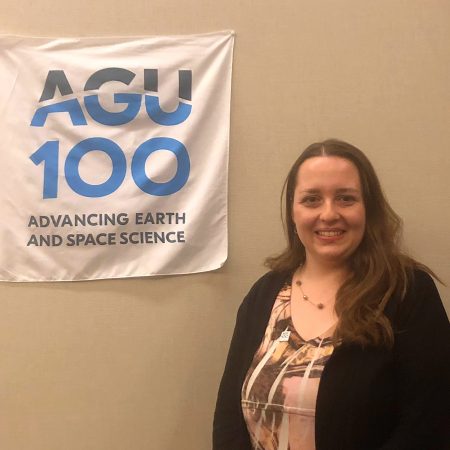

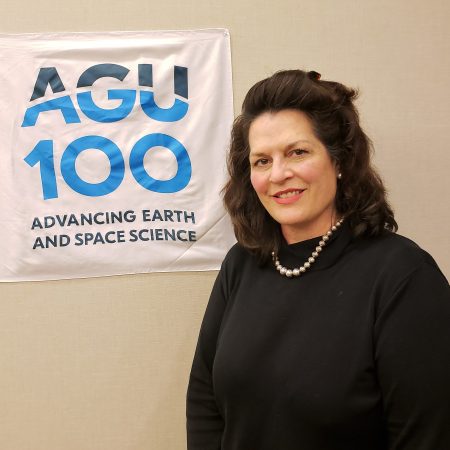
![If you're complaining, you better come back here and try and help us [with climate change policy]." an interview with Michael MacCracken](https://archive.storycorps.org/uploads/2018/12/101218MichaelMacCracken-450x450.jpg)
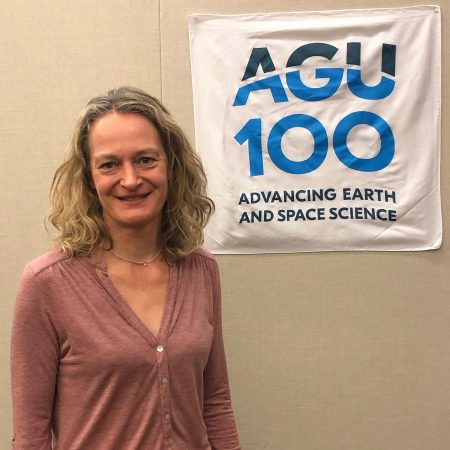
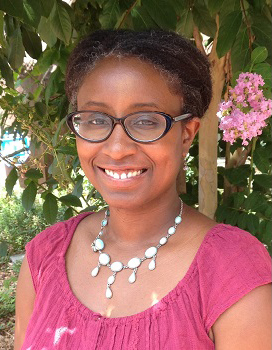


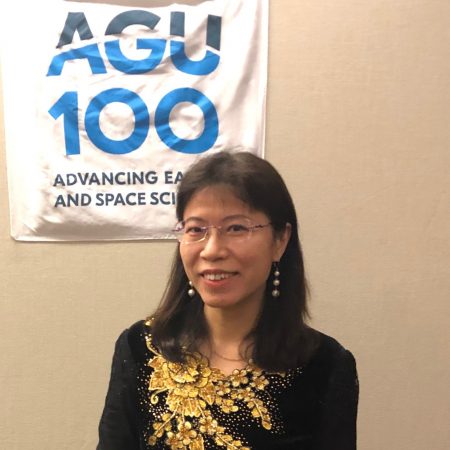
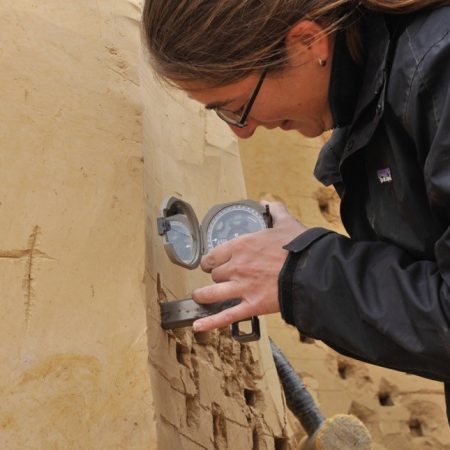
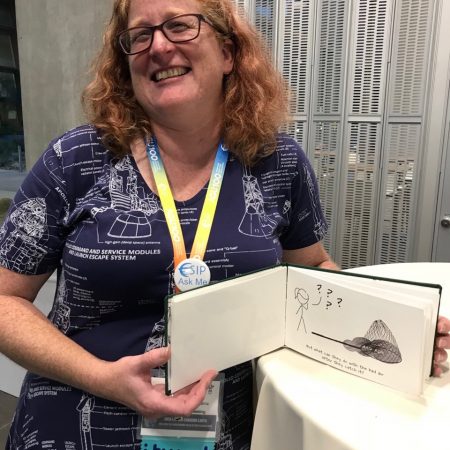





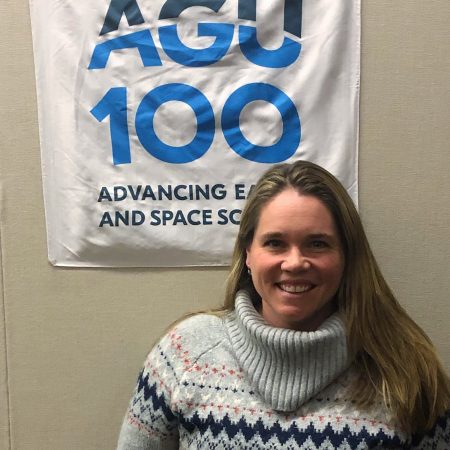
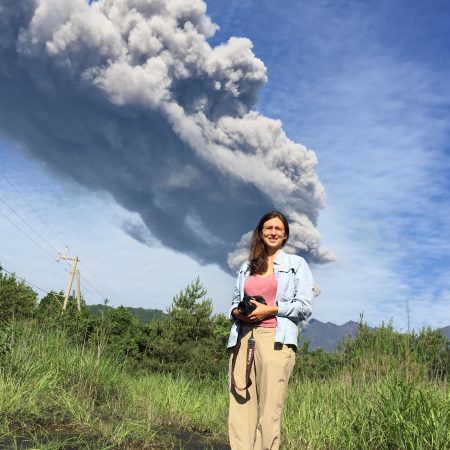
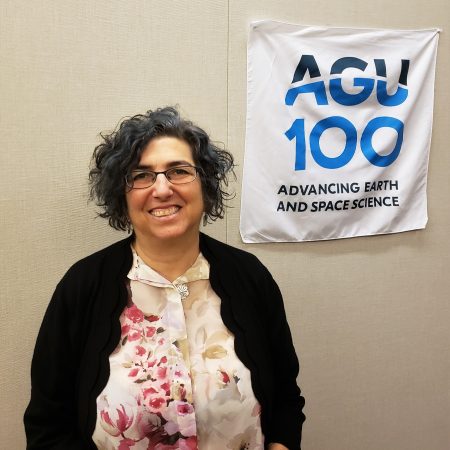
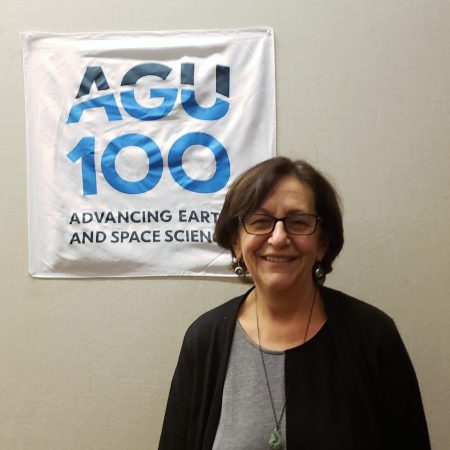
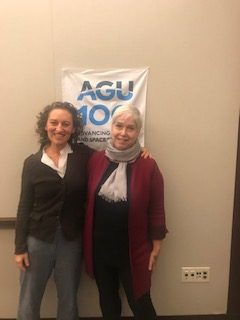
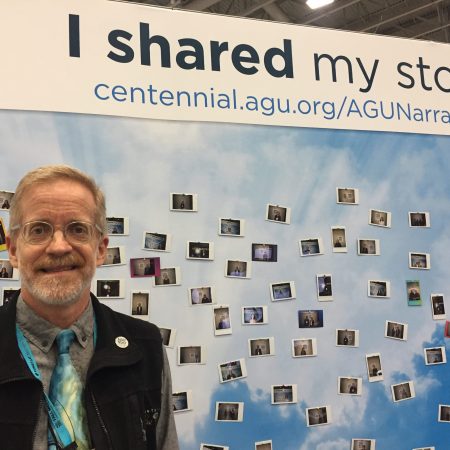
!["As soon as it [snow] lands, it starts to metamorphosize" an interview with Gail Skofronick - Jackson](https://archive.storycorps.org/uploads/2019/01/181210_Jackson-1-450x450.jpg)
